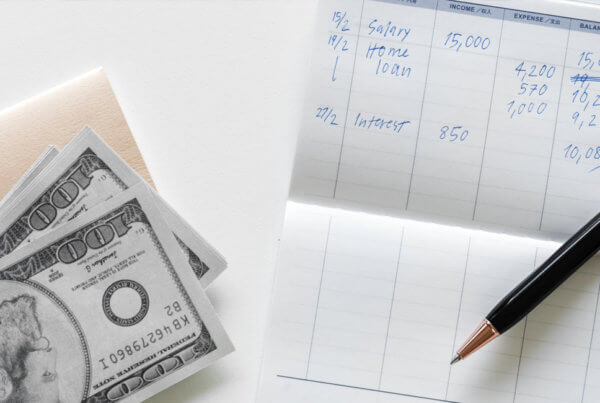Independence can be great, but not when you have to pay a deposit on everything!
The task of landing in your dream apartment doesn’t end with just signing a lease notice, paying the rent, and shifting your things. You also have to set up some or all of your utilities. These include Electricity, Water, gas, sewer, and TV/Internet, etc. Are you prepared to pay a deposit to open these accounts?
When you create a new account with utility companies, they require you to pay a deposit in advance before they will turn on your utilities. As with the other security and pet deposits, utility deposits are meant to insure against losses that may result from your unpaid or underpaid bills.
The deposits are based on your credit score, which is checked during the signup process for most utilities. Often times, the initial deposit is equal to one month utility cost of the previous resident at that address. However, with bad credit it may be 2 or 3 times that amount.
When I moved into my first apartment, age 18, I remember paying a $350 deposit for electric in a 650 square foot loft. I had very little credit, and what I did have wasn’t good. This changed in later years, once my credit was back on track the deposits were lower or non-existent.
You have to pay a deposit on utilities, and other recurring services.
If you are a new utility customer, utility companies create a new account which means they are actually issuing you credit. Because you are going to use the utilities and services before their payments are made. A utility is much like an unsecured debt. Obviously, they can’t repossess used water or power, so they rely on your credit to determine trustworthiness. Therefore, individuals with a good credit history will be welcomed by them with little to no deposit.
There are utility deposits to be paid on almost all utilities and recurring services like Electricity, Water, Telephone, Sewer, Natural Gas, etc. Moreover, Service connection fee is also applied to newer, transferring or reconnecting after disconnection for non-payment residential utility accounts.
These reconnection fees are typically $30 to $40 and add up quickly if you’re habitually behind on your payments.
What factors contribute to deposit amounts for consumers? How can I avoid deposits?
Your utility deposit may be reduced or waived if your credit history is good. If you have a bad credit history, you may have to pay a higher deposit amount. The good news is, unlike a car loan, the utility company is not going “turn you down” – they are just going to impose higher deposit amounts on you.
Also, utility companies may ask new customers to provide a “letter of guarantee,” a letter from a person who agrees to pay the bill if their customer fails to do so.
Utility deposit amounts vary widely
The amounts for utility deposits vary widely, as there are no strict regulations on what service providers and landlords can charge. For example,
According to Duke Energy, which covers several states across the Southeast, electricity deposit may range anywhere from $100 to $250 depending on the user’s monthly bill.
Other utility companies require a lump sum deposit of $300 or more for residential electricity service agreements. If your cable or Internet provider requires a deposit, it may also cover equipment usage. Some utility companies will charge new customers a deposit amount equal to the cost of a month’s service.
Security Deposits.
A security deposit is a deposit of money deferred to the landlord to ensure that rent will be paid and other responsibilities of the lease performed (e.g., paying for any type of damage caused by the tenant). The laws pertaining to these deposits vary from state to state.
Security Deposits: Receipts and Interest
On receiving a last month’s rent and/or a security deposit, the landlord should give the tenant a receipt for each prepayment. If he or she does not, it is perfectly advisable for the tenant to claim one. In many states, the landlord is required to give the tenant a receipt.
What can I do to improve my credit and not have to pay a deposit?
Your credit score numbers give an impression of your financial management. Hence, a good credit history will tempt utility companies to create your new account easily. Adversely, a bad credit score will end up in higher deposit amounts due to lack of faith and trust on your money management. Here are a few tips to improve your credit score.
Accurate credit reports
Check your credit reports from each of the three major credit reporting agencies. Free credit reports can be accessed via AnnualCreditReport.com – Ensure they are correct. You don’t want any mistakes on there costing you money and credit score points.
Avoid your late payments
Set up payment-due date alerts and get organized with all your credit cards and loans. Even better, use auto-draft payment options for some or all of your bills. This ensures you’re never late, and keeps your credit score healthy.
Clear off any outstanding debts
It’s important that you clear off all outstanding dues to get a good credit score. Old collections, debts never paid, forgotten credit cards don’t go away just because you’ve forgotten them. Review your credit report and make a plan to pay off each outstanding debt. This may take some time, but will raise your score significantly once complete.
Use a credit card wisely – Good credit means you wont have to pay a deposit for most things.
If you qualify for a credit card, and don’t currently have one, consider getting one. Now, the card you’re going to qualify for will have an outrageous interest rate.
This is the cost of poor credit. However, if you use the card wisely, you can build your credit and not feel the impact of the APR too severely.
One of the best ways to use a credit card for rebuilding is what I like to call “the gas card” – Put you weekly gas fill up on your card, take the money you would have spent on it and set it aside. At the end of the month, pay your balance in full. This will lead to very little interest paid, because your debt has not sat with the lender for more than a month. And, it will build your credit as lenders will view you as a consistent payor, always good in the banks eyes.




